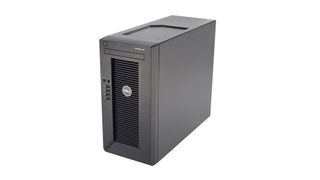How to choose the right server for your business
Make sure you play your server cards right
When it comes to finally making your choice, make sure you follow these steps to ensure your business buys the right server…
Match the server to your primary need
If you want to improve how your business uses email, a dedicated email server is a good idea. Or if your business needs to manage large amounts of shared documents, a file-sharing server would be the ideal option.

Buy an affordable server
Always set a budget for your new server and stick to it. The server market has a number of vendors all vying for your business. Always shop around, as there can be some great deals to be had.
Choose best of breed
Once you have decided which type of server is best for your business needs, look for vendors who are leaders in that particular server type. This will ensure you always buy a server from a reputable source and one that is fully supported.
Buy the right operating system
As with your business desktop PCs, choosing the right operating system is vital to ensure applications are stable. Similarly, servers need an operating system that is robust to manage the many thousands of requests for data they could have to handle over a typical session.
Build in expansion and redundancy
Your business doesn't want to be replacing its server in the short-term, so a level of expansion is highly recommended. This will usually mean using hard drives that can be upgraded as your server requires more memory. Using a RAID configuration will also ensure that any hard drives that fail don't lose any of your precious business data.
Support and maintenance
If your business doesn't have onsite IT support, this will have to be outsourced. The vendor you buy your server from may also offer maintenance as a package deal. Look very closely at the service level agreement you will be asked to sign to ensure it meets all your needs.
Are you a pro? Subscribe to our newsletter
Sign up to the TechRadar Pro newsletter to get all the top news, opinion, features and guidance your business needs to succeed!
Choose the right cloud service providers
Often, small businesses will leverage the massive benefits that cloud-based servers can offer. Treat these services as if you had the server at your premises. Take some time to perform due diligence on the vendors you have on your shortlist. Talk to their other clients, and look at the service levels you can expect before signing up for their services. Look closely at security if you intend to store sensitive information on your cloud-based servers.

Match virtualisation to your needs
The ability to divide up a single server to behave like multiple servers is now a highly popular method of creating new servers using existing hardware. The virtual server behaves as if it was a physical server but uses software known as a hypervisor to create the new server. Care should be taken to ensure the underlying hardware of processor and storage can cope with the additional virtual servers.
Conclusion
A wholesale move to the cloud may be a step too far at the moment, but simply adding to an existing server sprawl isn't an option either. Being smart about purchasing server capacity means understanding how your business fundamentally uses data. When you understand this aspect of your enterprise, choosing the right server is a much clearer and less risky endeavour.
- You might also like to read: Cloud vs new server: should you replace your server or move to the cloud?
Most Popular
